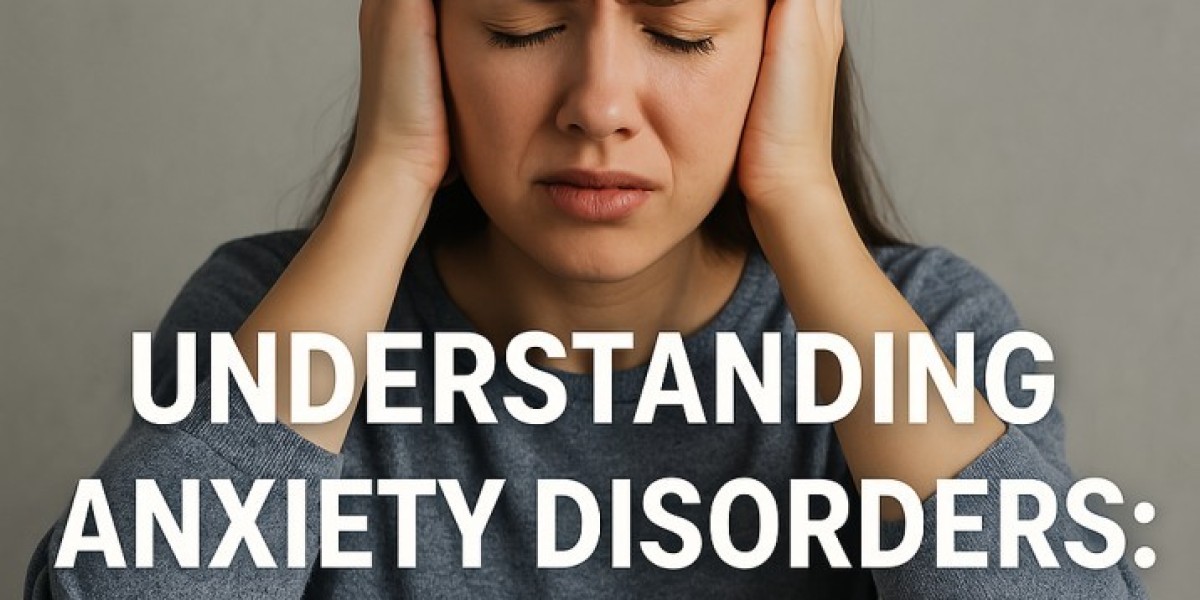Anxiety disorders are not the same for everyone. They are a group of conditions where a person experiences constant fear or worry that interferes with daily life. While the symptoms vary, common ones include restlessness, irritability, trouble focusing, sleep problems, and physical discomfort like a racing heart or upset stomach.
1. Generalized Anxiety Disorder (GAD)
People with GAD often worry excessively about everyday situations such as work, health, or finances. The worry is difficult to control and lasts for six months or more. It can lead to physical symptoms and significantly affect quality of life.
2. Obsessive Compulsive Disorder (OCD)
OCD involves repeated, unwanted thoughts (obsessions) and repetitive behaviors (compulsions). Common examples include frequent hand washing, checking locks, or counting. These actions provide temporary relief but often take up hours of the day.
3. Panic Disorder
Symptoms include chest pain, rapid heartbeat, dizziness, sweating, and a fear of losing control. People may begin to avoid places where attacks occurred.
4. Post-Traumatic Stress Disorder (PTSD)
PTSD can develop after someone goes through a traumatic event like an accident, assault, or natural disaster. Flashbacks, nightmares, and emotional numbness are common. Many people with PTSD avoid places or people that remind them of the trauma.
5. Social Anxiety Disorder
Also known as social phobia, this condition involves a strong fear of being judged or embarrassed in social situations. People may avoid public speaking, eating in public, or even small group settings. Physical symptoms include blushing, trembling, and difficulty speaking.
6. Specific Phobias
These are intense fears of certain objects or situations, such as heights, spiders, or flying. The fear is irrational but can cause people to go out of their way to avoid the trigger, affecting their daily lives.
What Causes Anxiety Disorders?
There is no single cause of anxiety. It can result from a combination of genetic factors, brain chemistry, personality traits, and life experiences. Past trauma, major stress, or other mental health issues can also contribute to the development of anxiety disorders.
Diagnosis and Treatment
Mental health professionals use interviews and assessment tools to diagnose anxiety disorders. They may also rule out physical conditions that can cause anxiety symptoms.
Effective treatments include:
Cognitive Behavioral Therapy (CBT): Helps identify negative thought patterns and teaches better ways to respond to anxiety.
Medications: Such as antidepressants or anti-anxiety drugs, which can reduce symptoms.
Lifestyle changes: Regular exercise, healthy eating, proper sleep, and relaxation techniques like meditation or deep breathing.
Seeking Help in Ontario
If you or someone you know is struggling with anxiety, reaching out for support is a positive step. A trusted anxiety treatment center can offer personalized care through therapy, assessments, and strategies to help manage anxiety effectively.
Final Thoughts
There are many types of anxiety disorders, and each has its own challenges. Whether it's constant worry, panic attacks, or fear of social settings, anxiety can be overwhelming. But with the right treatment and support, it is possible to feel better and regain control. If you're in Ontario and looking for professional help, an anxiety treatment center may be the right place to start.






